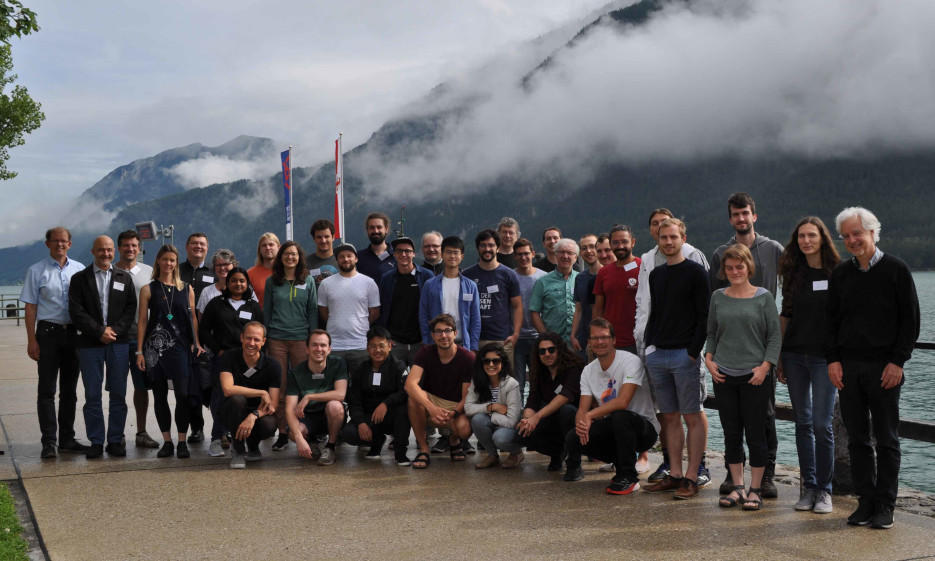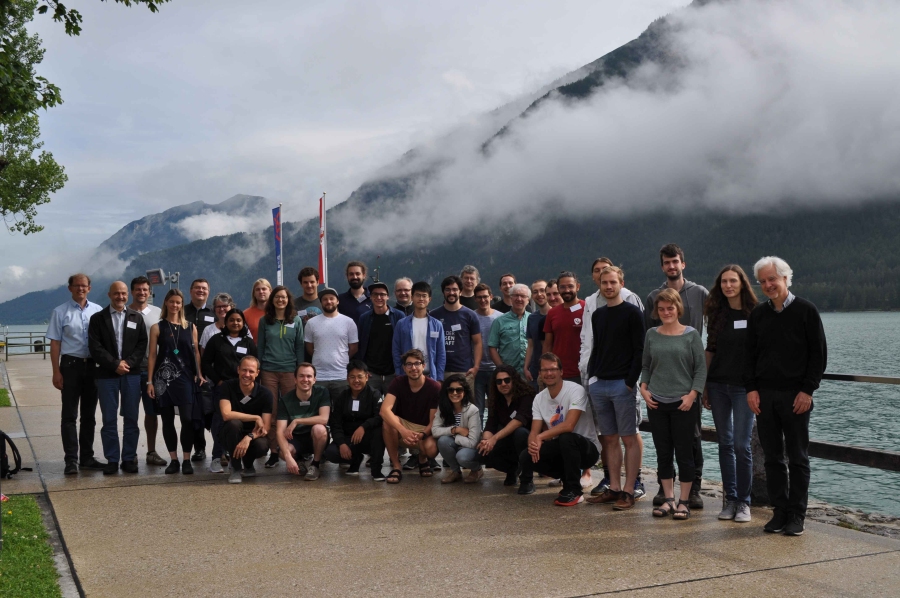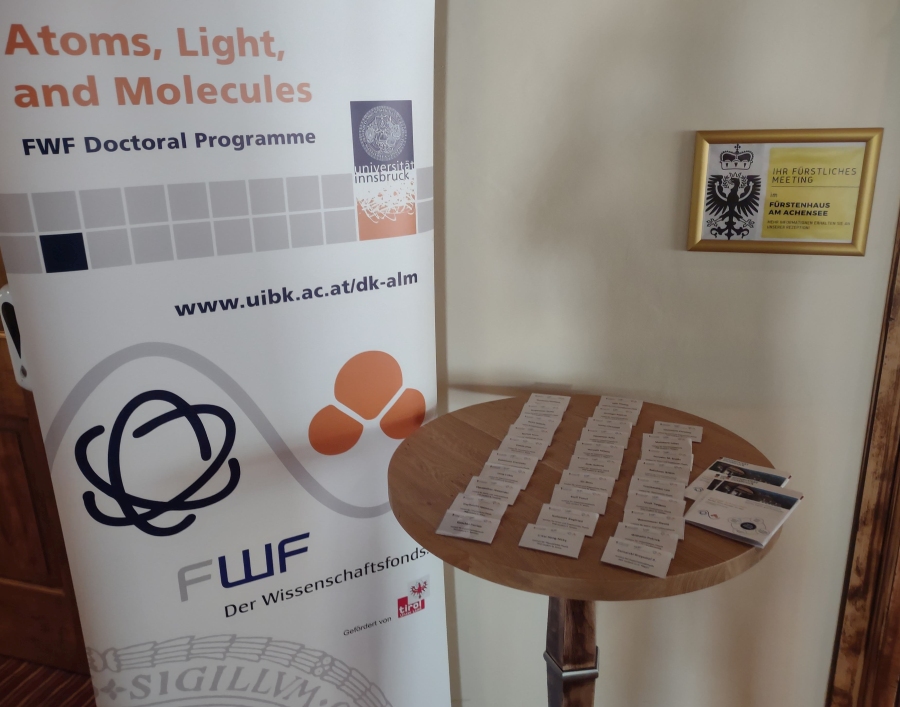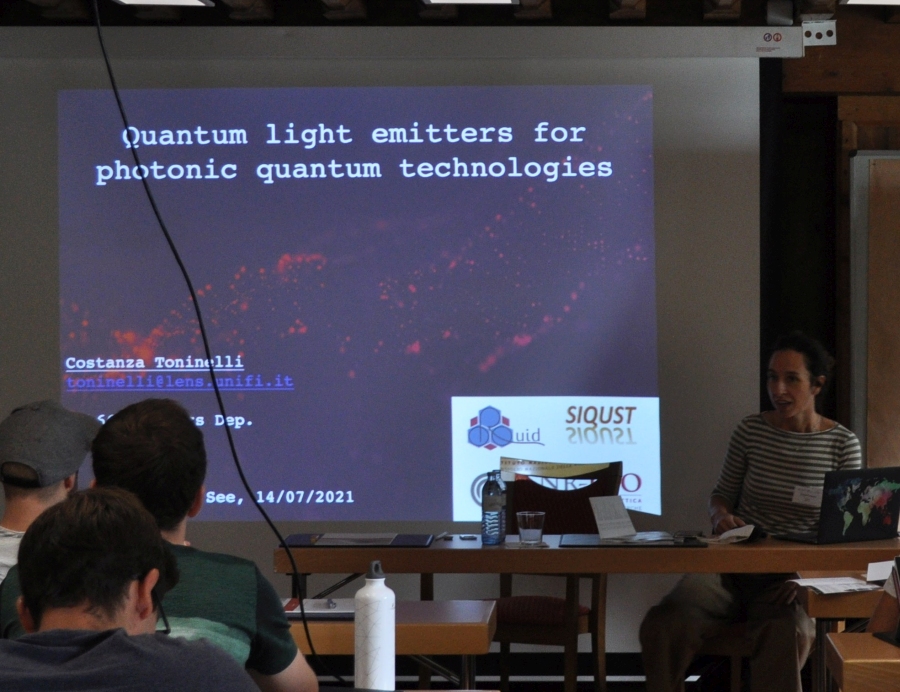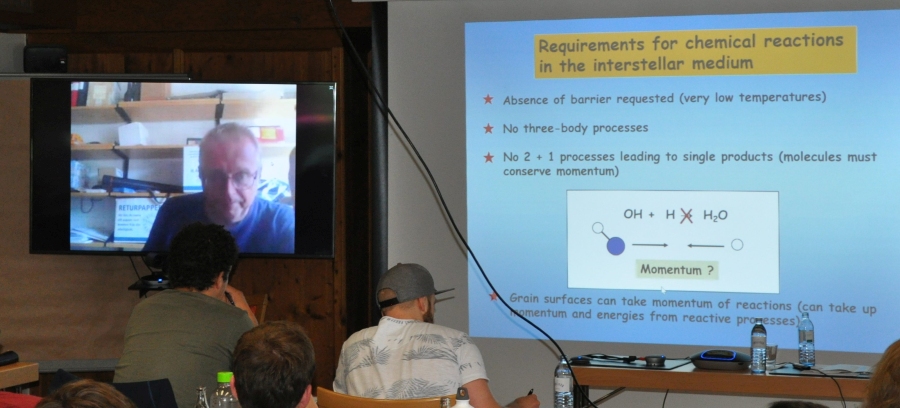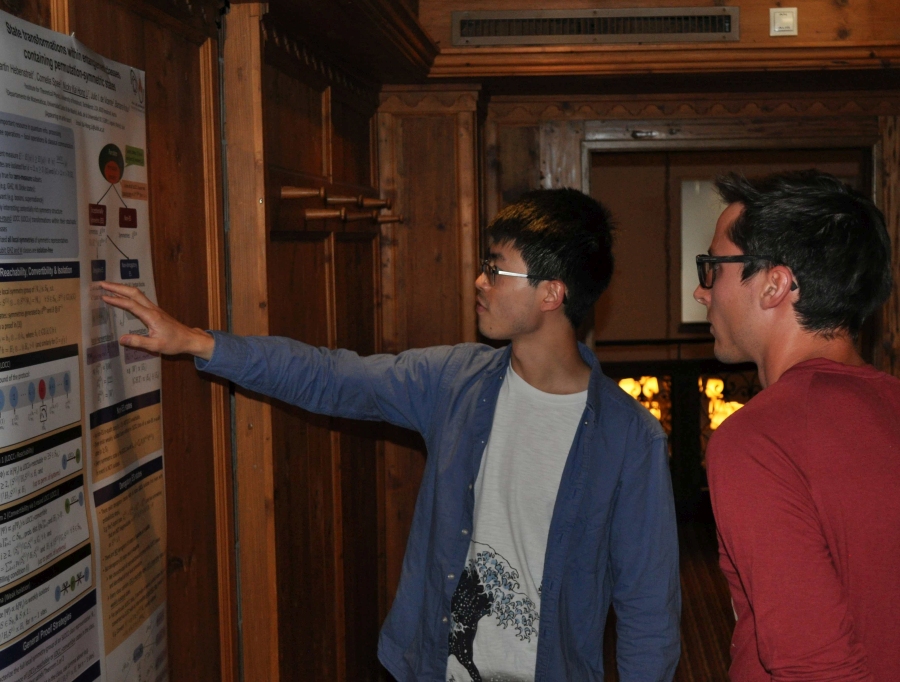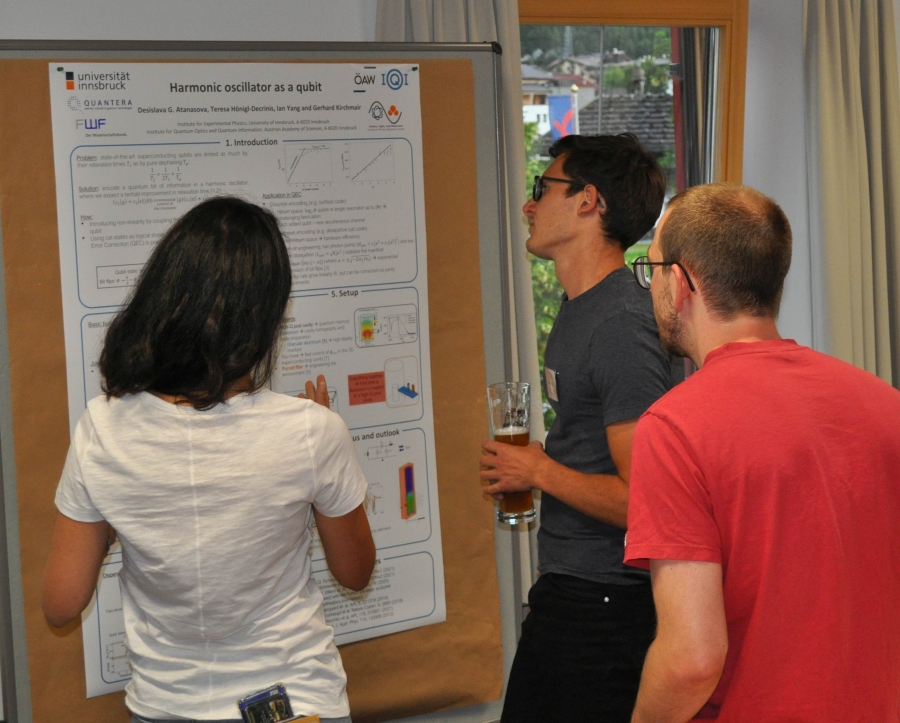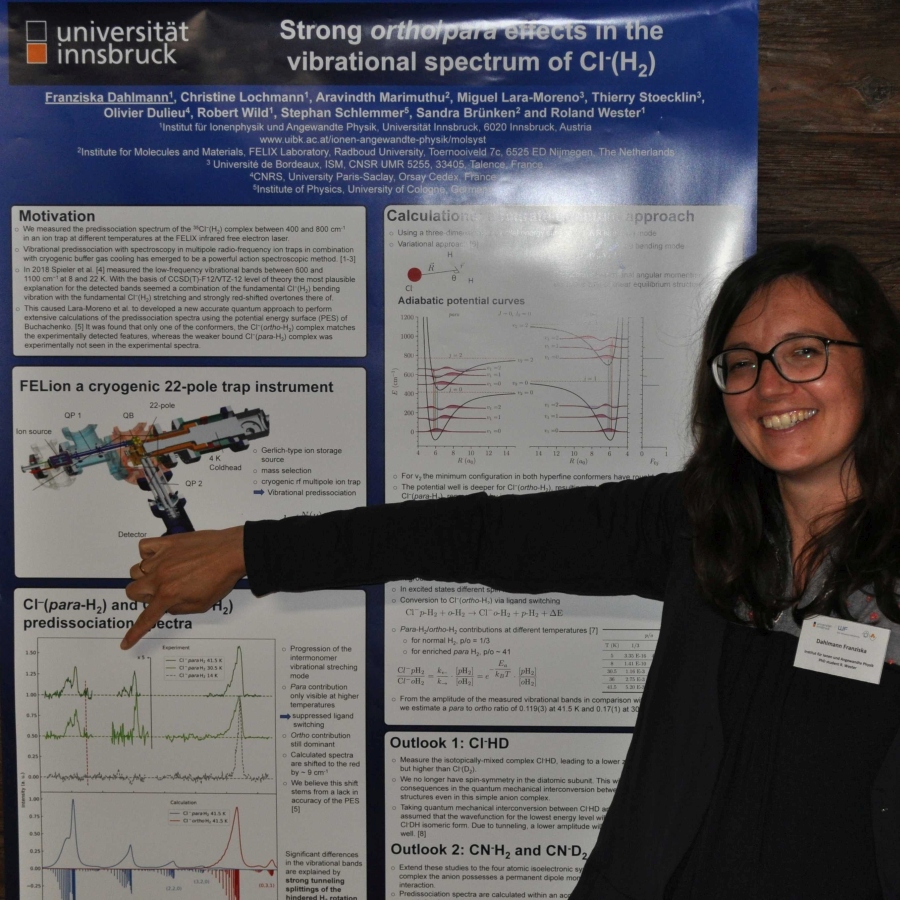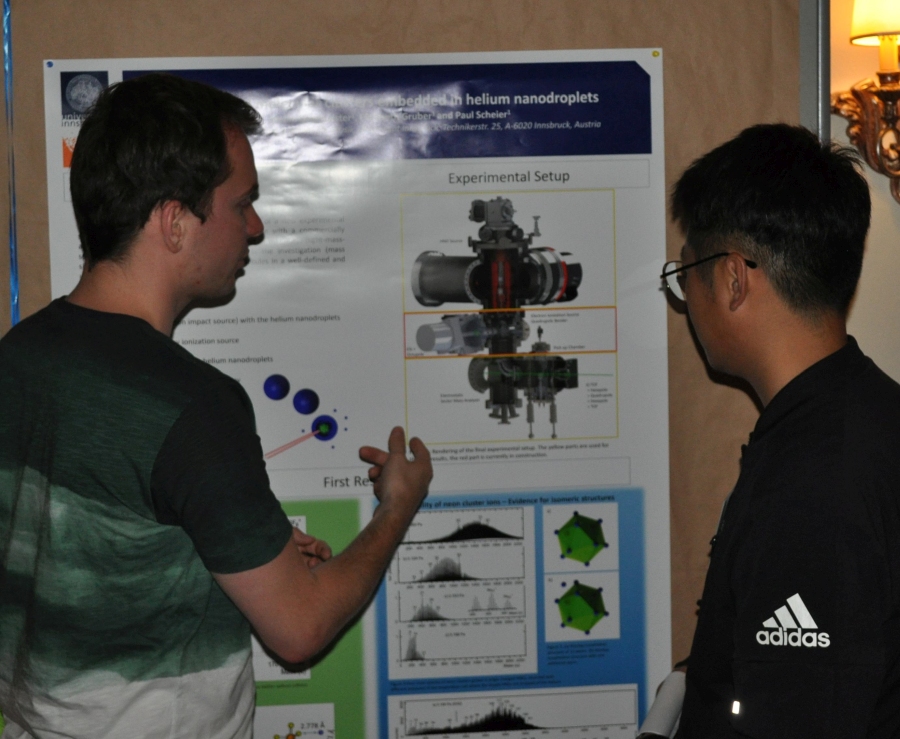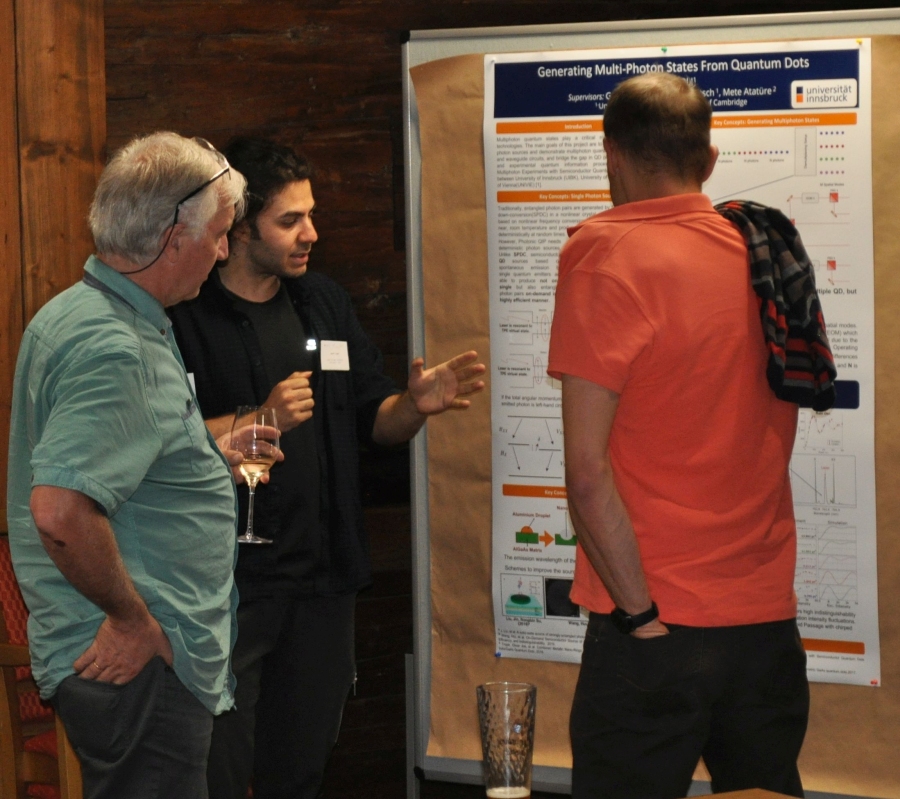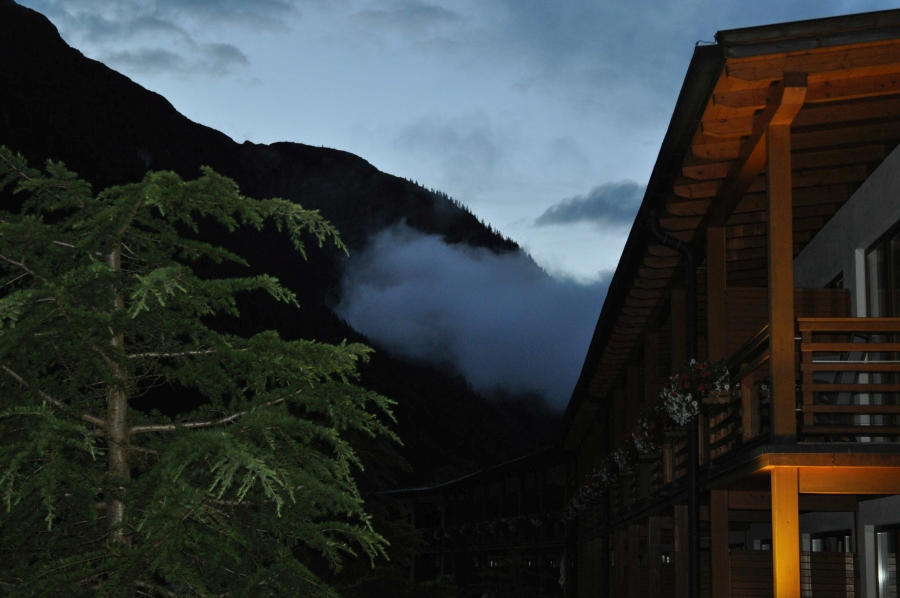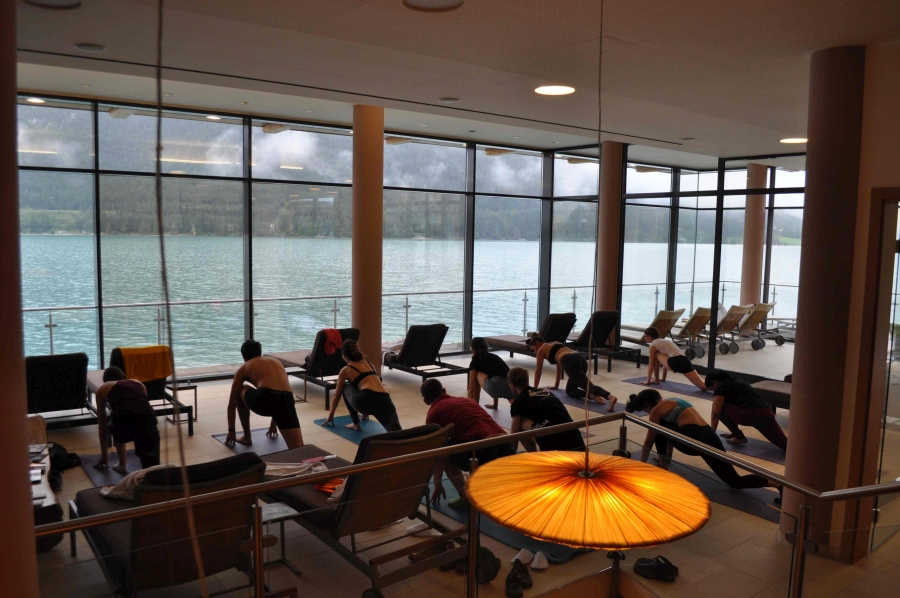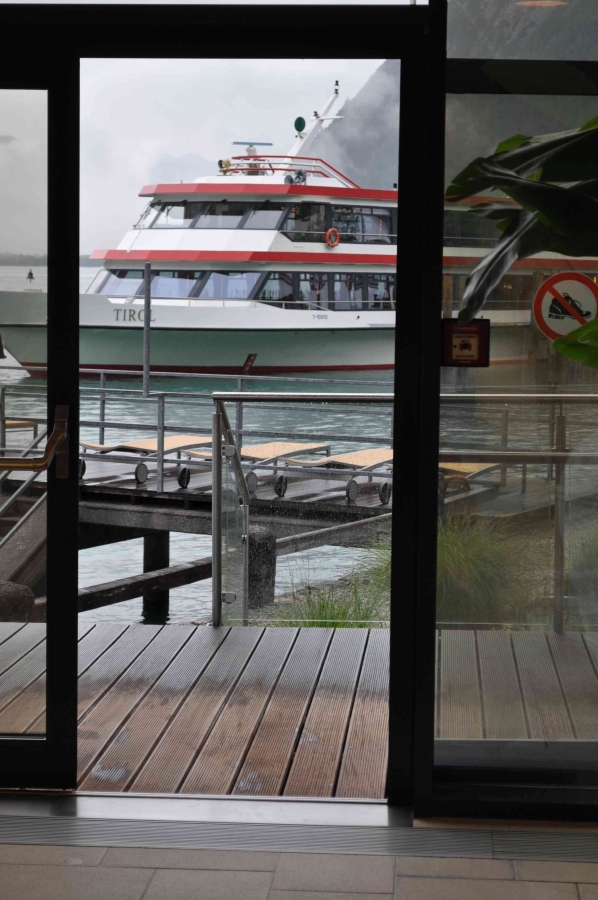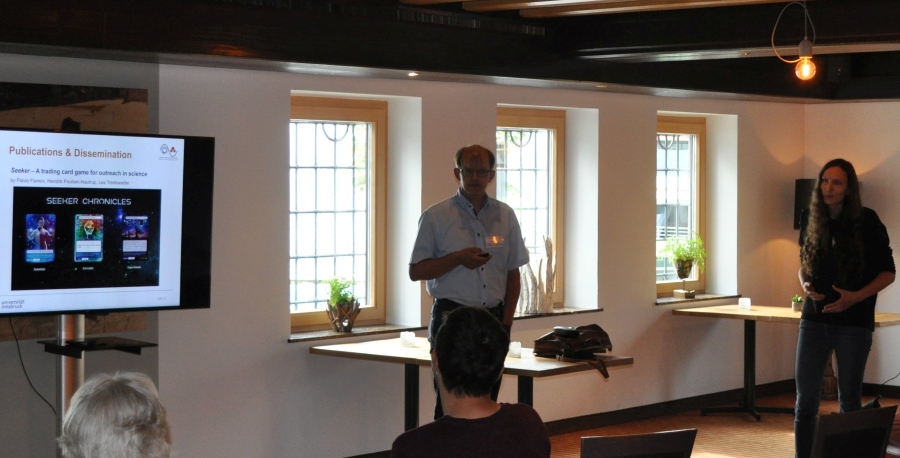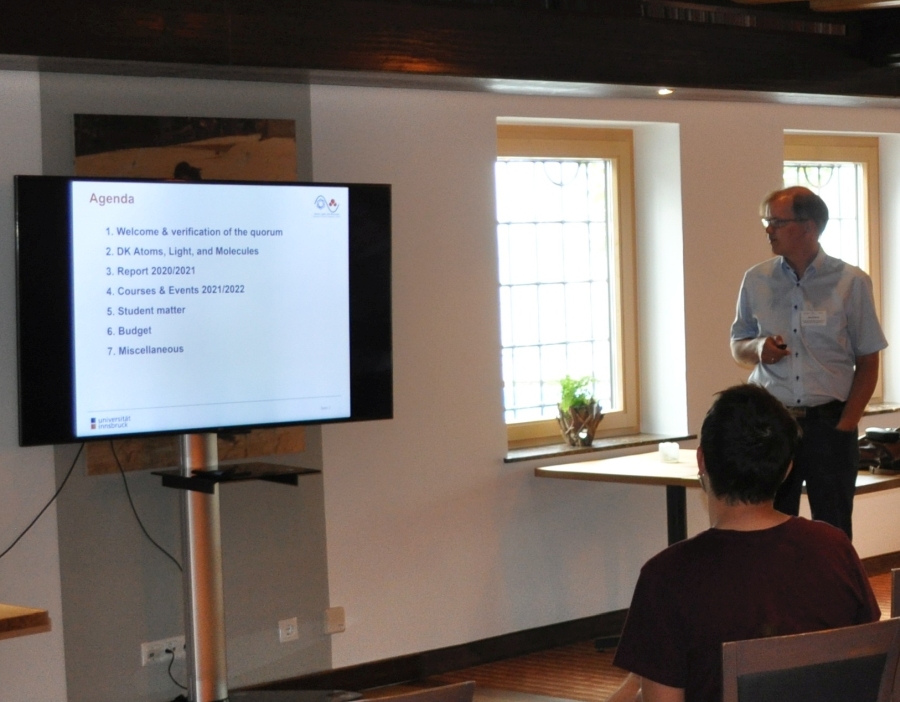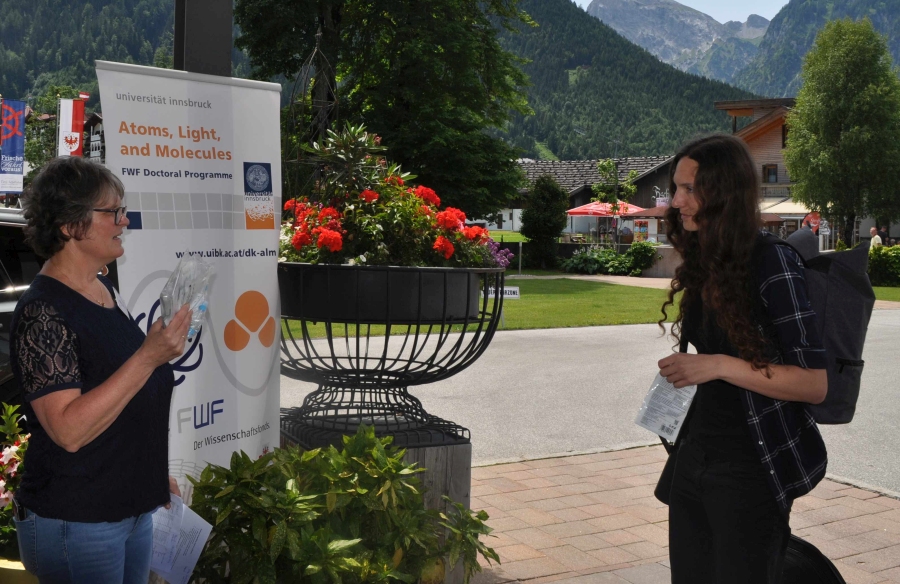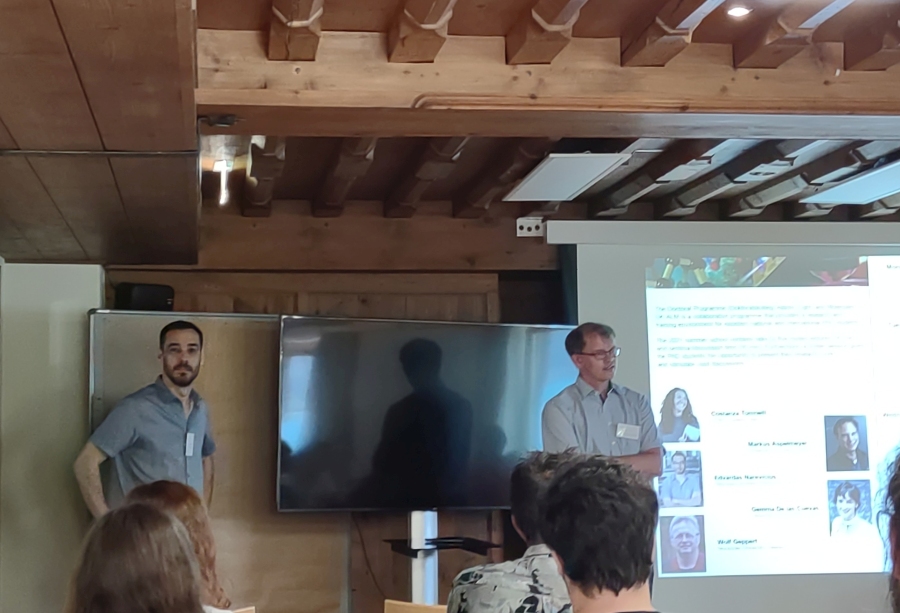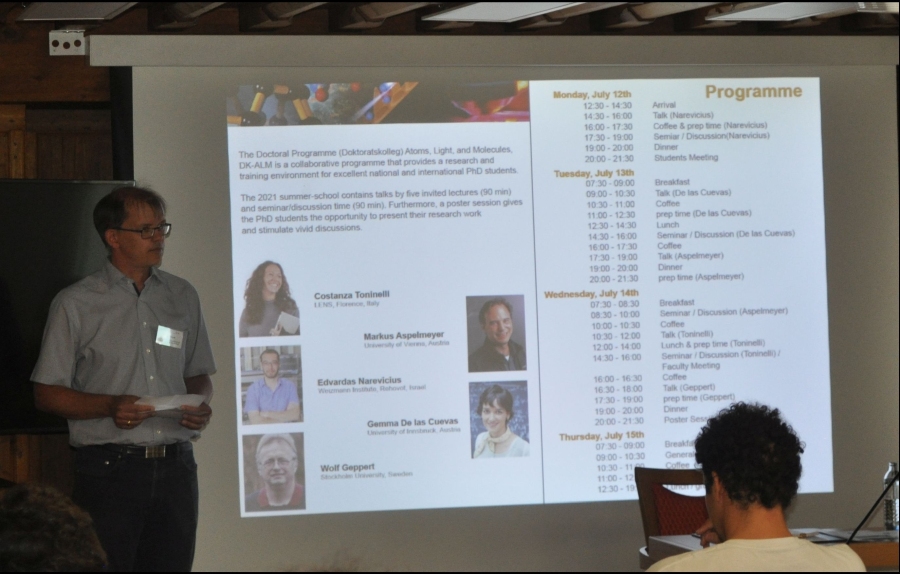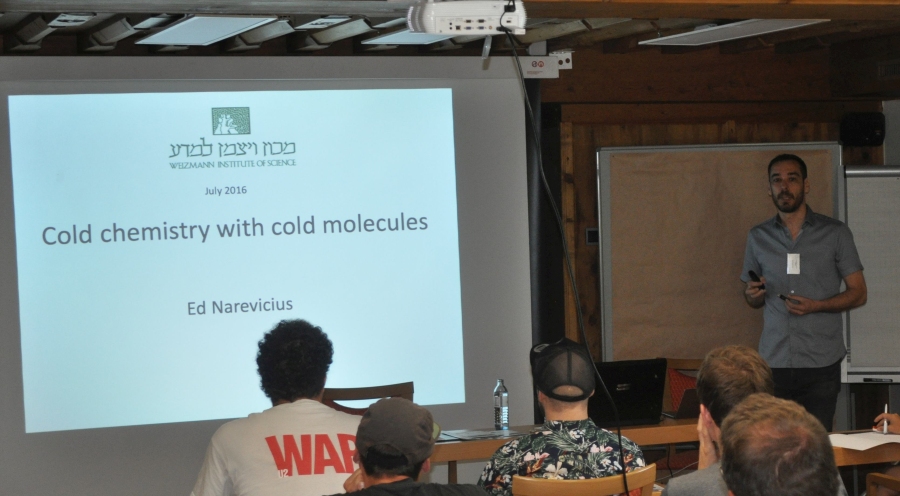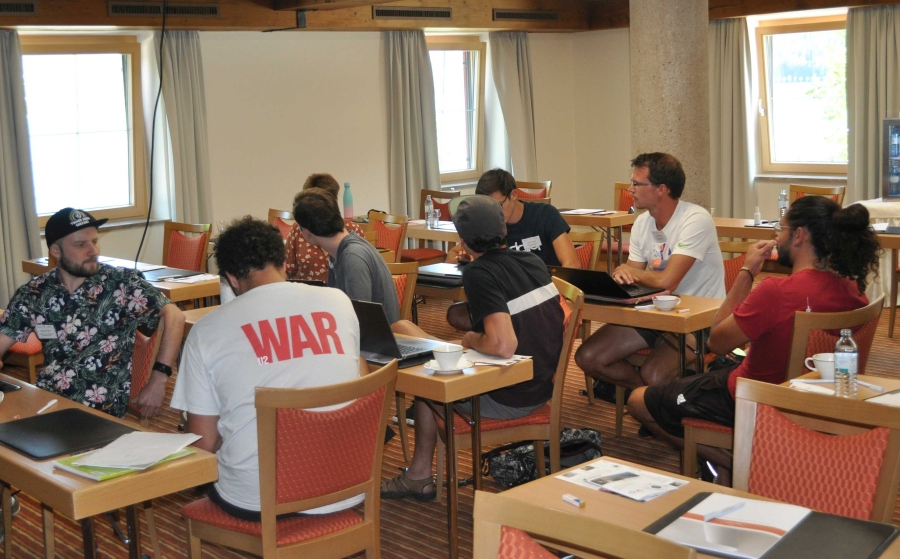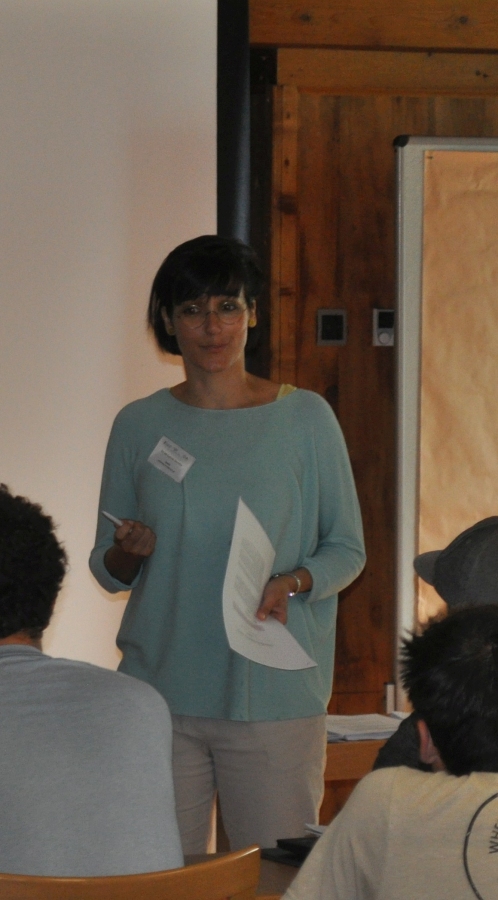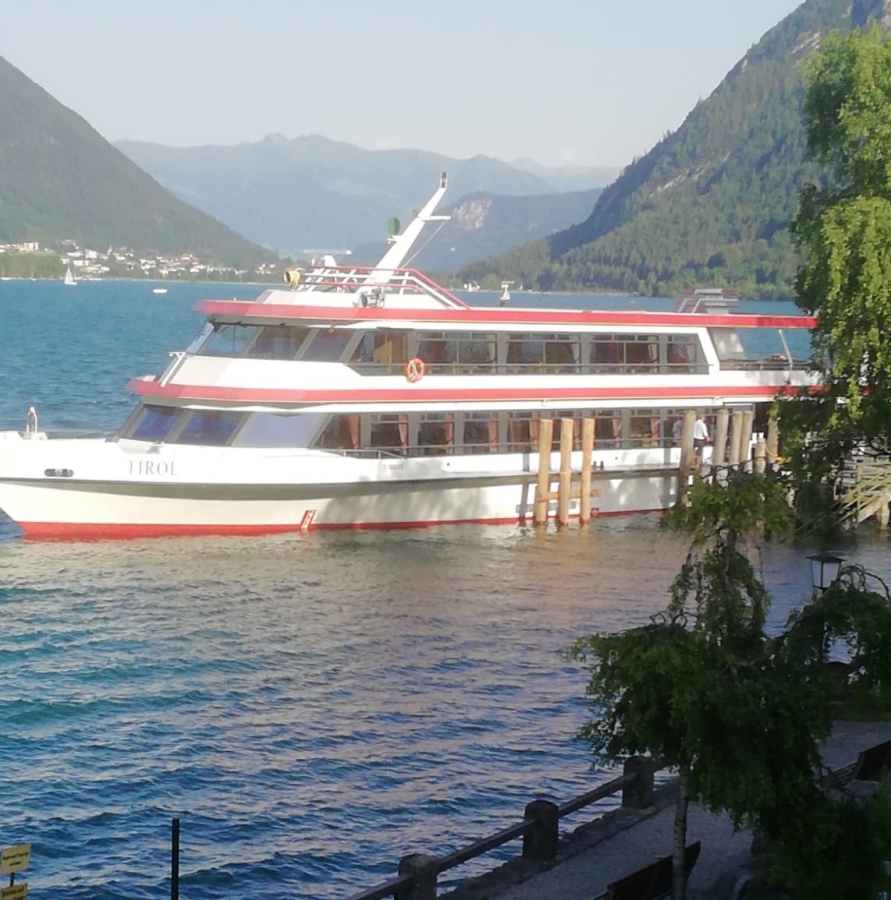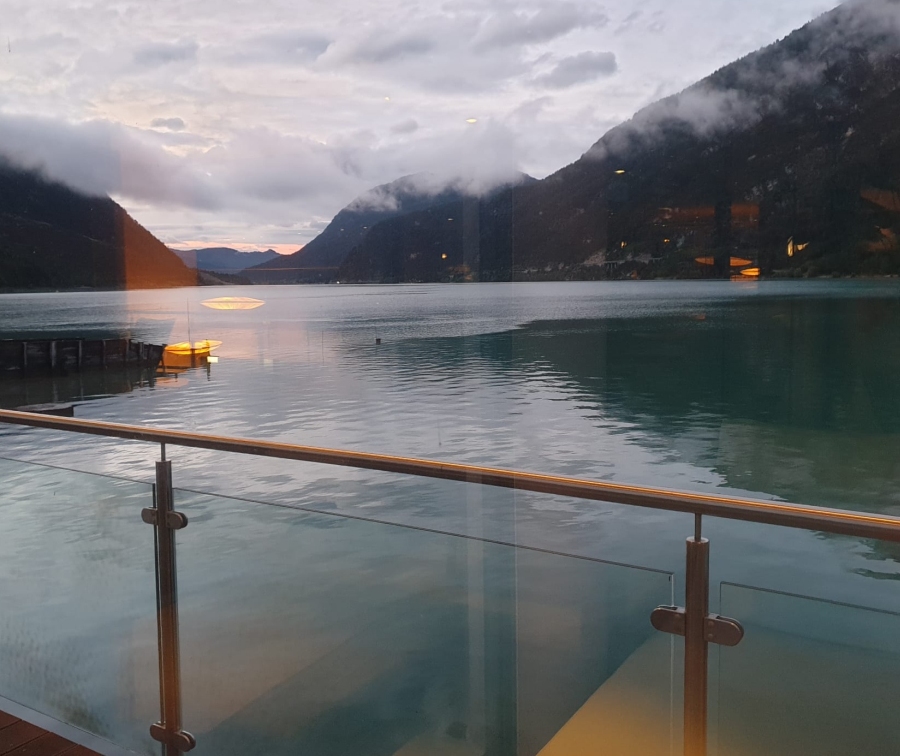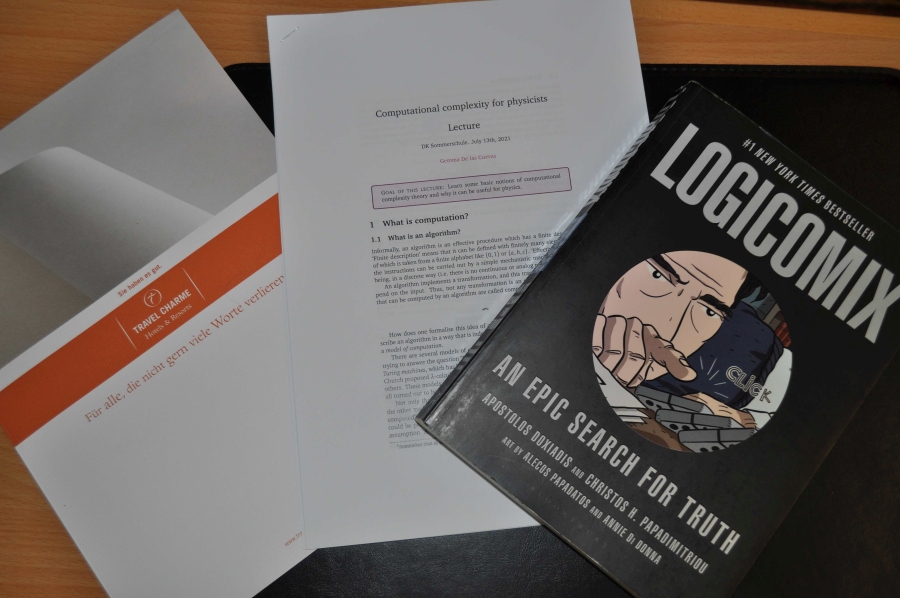We thank the speakers of the summerschool for giving excellent talks and seminars on hot topics in AMO physics and for stimulating questions and discussion with and among the students.
Invited speakers
Costanza Toninelli, LENS, Florence, IT
Quantum light emitters for photonic quantum technologies
In Costanza Toninelli's talk a few general concepts in quantum optics have been reviewed, which are the basis of selected applications in quantum technologies. It has been shown why quantum emitters can be excellent single photon sources, what is the state of the art and the major challenges in the field, with a focus on light matter interfaces. Molecules are a toy model to grasp the physics of quantum emitters in the solid state.
Wolf Geppert, Stockholm University, SE
Ion processes in space and planetary atmospheres
Wolf Geppert lecture has focused on the role of ion reactions in the interstellar medium and planetary atmospheres. The most important ionic processes in these environments were mapped out and the experimental methods to elucidate their rate constants and product branching ratios have been discussed. Furthermore, the role these reactions play in the build up of complex organic molecules in space and planetary ionospheres has been reported.
Gemma De las Cuevas, University of Innsbruck, AT
Computational complexity for physicists
What is an algorithm? What is a Turing machine? What are these famous complexity classes P and NP? And more importantly, why is all of these relevant for physics? Gemma De las Cuevas lecture aimed at answering these questions. The goal was to show that the ground state energy problem of the Ising model is NP-complete.
Edvardas Narevicius, Weizmann Institute, Israel
Quantum Molecular Lab
The group of Edvardas Narevicius is focused in unraveling the dynamics of cold molecular collisions that serve as a stepping stone towards realization of many body isolated quantum molecular systems. They are among the pioneers in studying collisions and reactions at the limit of one Kelvin and below where quantum effects play a major role. Recently, they have opened a new window for quantum experiments where colliding particles’ wavefront has been engineered to carry new quantum numbers,such as center of mass orbital angular momentum. They are developing novel molecular cooling methods with the aim of reaching high enough phase[1]space densities to observe molecular quantum degenerate gases, either Bose-Einstein or Fermi.
Markus Aspelmeyer, University of Vienna, AT
Exploring the Boundaries of Quantum Physics and Gravity
“How does a quantum object gravitate?”, “How well can we measure gravity of microscopic systems?”. Such questions are the driving force behind the research of Markus Aspelmeyers group. To address them they are developing quantum measurement and control techniques to investigate and utilize quantum states of motion of massive solid state objects. The research aims to provide new insights on macroscopic quantum physics, on gravity at small scales and, in the long run, on the phenomenology of the gravity-quantum interface in table-top experiments.
Location
The Summer school took place at the
Hotel Fürstenhaus, Pertisau, Achensee, Tyrol
